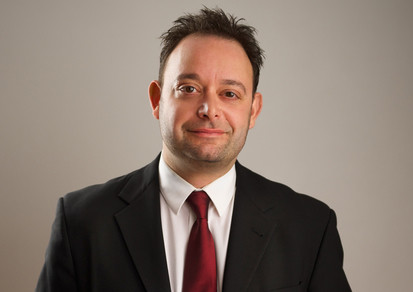Who cares if Sanders is Jewish?
It would be churlish to deny the remarkable achievement of Senator Bernie Sanders in decisively winning the New Hampshire primary.
For months, Sanders was depicted as an eccentric whose limited appeal would be crushed by the ruthless Hillary Clinton political machine. But there he was at the podium in Manchester, laying out an agenda — an increased minimum wage, “breaking up” the big banks, a gutting of the criminal justice system — that sounded, in places, akin to what the followers of the Bolshevik revolutionary Leon Trotsky called “transitional demands” (by which he meant a strategy to expose the democratic limitations of capitalism through leveling demands that cannot be met without a socialist revolution).
It was stirring stuff, enhanced by Sanders’s strong Brooklyn accent and his facial expression, which betrays that he’s spent much of his life going from one left-wing meeting to another. In particular, he reminded me of another leading Jewish socialist whom I knew when I was growing up in England, the late Ian Mikardo, a Labour Party parliamentarian who represented a working class, east London constituency.
I met “Mik,” as he was known, through Poale Zion, a socialist Zionist organization affiliated with the Labour Party. The son of Jewish immigrants from western Ukraine, Mikardo embraced both the Labour Party and Zionism as a young man. For him, there was no contradiction between these two commitments; for Mikardo, socialism and Zionism were joined at the hip.
What resulted was a strong, proud Jewish identity that stayed with him for his entire life. Declaring yourself a Jew, a socialist and a Zionist was a brave thing to do during the Cold War, when the Soviets and their official doctrine of “anti-Zionism” exercised undue influence on much of the left.
Which brings me back to Sanders. Most Americans would not have been struck by his description of himself as the son of a “Polish immigrant.” But some Jews were, and not necessarily those on the right. Seconds after that remark, Chemi Shalev of the leftist daily Haaretz tweeted, “Is it parochial to be irked a bit by Sanders describing himself as the son of a ‘Polish immigrant’?”
I suppose it is parochial, but I’ll admit that I too was irked. “Ian Mikardo would never have played down his Jewish origins,” was my first thought. My second thought was essentially frustration at Sanders’s apparent ignorance of the society that his forebears came from. The nature of Poland at that time determined that when Eli Sanders came to America, he did so as a Jew, not as a Pole.
Since that speech, several reports in the Jewish and general media highlighted two factors: that Sanders is largely indifferent—note well, indifferent, not hostile—to Judaism and Jewish identity, and that most Americans don’t care that he’s Jewish and most American Jews aren’t preparing to break out the streamers in case he becomes this country’s first Jewish president.
Jewish or not, the foreign policy of a Sanders administration would make the eight years of Barack Obama’s presidency seem like a halcyon period by comparison. To begin with, Sanders isn’t really interested in the rest of the world—like most leftists these days, he has abandoned the principle of internationalism. Working conditions at Walmart animate him; Syrian children murdered by poison gas are someone else’s problem.
The milieu that is influencing Sanders’s thoughts on foreign policy—when he can be bothered to think about it at all, that is—is one that is nakedly hostile to Israel. On the Middle East, he listens to J Street, a Jewish anti-Israel group that strangely masquerades as “pro-Israel,” and its ally the National Iranian American Council, which is the closest thing the Iranian regime has to a lobby in Washington. So it hardly takes a soothsayer to figure out that a Sanders foreign policy would be grounded in isolationism, together with a willingness to let Russia, China, and Iran run amok in the name of reining in American imperialism.
The Sanders phenomenon speaks to a wider problem, namely the growth of extremism in American politics. And because extremists of different stripes have more in common than they are prepared to acknowledge, seeming polar opposites can end up being very similar.
I don’t perceive a significant amount of light between Sanders and Donald Trump on foreign policy — both are isolationists, and both regard the world outside America as another galaxy.
If there’s anything to be said here in Sanders’s favor, it’s that he’s less giddy than Trump is at the prospect of meeting Vladimir Putin. But when it comes to substance, both candidates—one declaring that we need a socialist America, the other declaring that we need to make America great again—will preside over the continuing loss in global credibility that has become so stark under Obama.
Ben Cohen, senior editor of TheTower.org.

 44.0°,
Mostly Cloudy
44.0°,
Mostly Cloudy 




